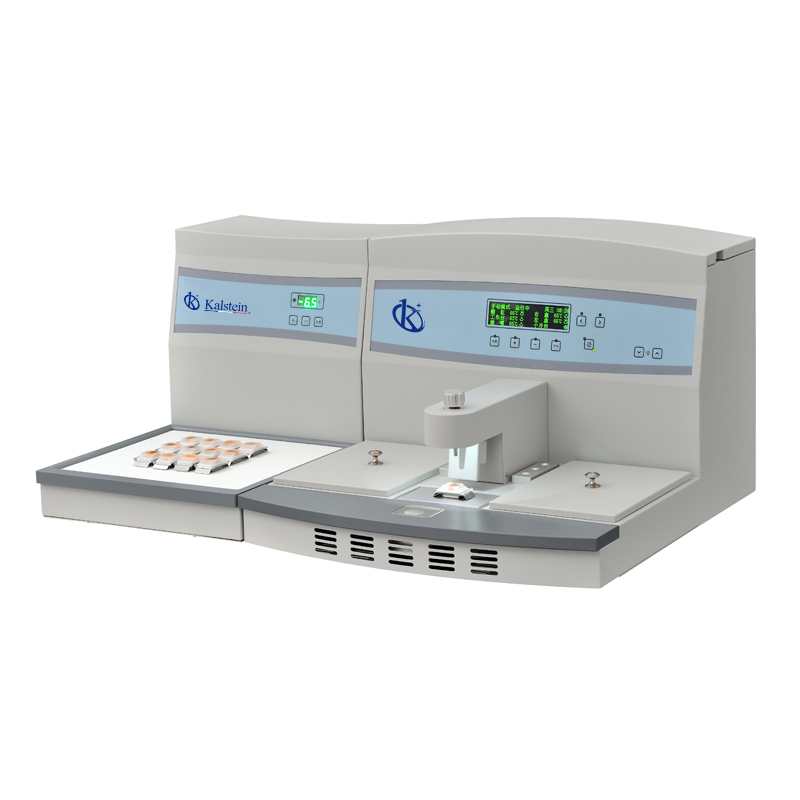Pathological anatomy is a fascinating and vital medical discipline that requires a good understanding. At its core, it is about studying diseases at the level of organs, tissues, and cells. It’s literally like reading and translating our body’s secret language, its story told through microscopy.
Making the transition from being an expert in the human body to developing a deep understanding of pathological anatomy is not an easy task. Furthermore, the discovery and diagnosis of diseases through this discipline are crucial for their treatment and control.
We understand that you need equipment that delivers maximum value to your laboratory. We invite you to visit https://kalstein.de/category-product/laboratory-line/pathological-anatomy/ to immerse yourself in our universe of cutting-edge technology equipment. Our prices are competitive and accessible, we combine the convenience of online shopping with the guarantee of an exceptional product. Because you deserve the best, we create and offer top-tier laboratory equipment. Make your choice today, where science comes to life. https://kalstein.de/
Characteristics of Pathological Anatomy
Pathological anatomy has a series of features that set it apart from other disciplines. First of all, it plays a key role in enabling accurate diagnoses. It also provides valuable insight into the prediction of the disease course and the patient’s response to a treatment.
Another key characteristic of pathological anatomy is that it is a highly specialized discipline. It requires a unique combination of clinical and laboratory skills. These skills complement each other to benefit the full characterization of tissue and cell abnormalities and changes.
Why does Pathological Anatomy have this price?
The “price” or investment in pathological anatomy is justified by both its educational value and its contribution to medicine. It is a massive and necessary effort dedicated to the teaching and learning of this field. Moreover, it carries a significant cost due to the quantity and quality of the equipment and reagents necessary to carry out the thorough studies that characterize it.
Comparison of Pathological Anatomy with Similar Products
When comparing pathological anatomy, as a discipline, with similar fields, it is important to consider its uniqueness. For instance, disciplines such as cellular biology and medical genomics also study the structure and function of tissues and cells. However, they do not use the same combination of macroscopic and microscopic pathological practices to understand diseases.
Pros and Cons of Pathological Anatomy
Looking at pathological anatomy, there are several key advantages and some potential downsides.
|
Advantages: |
Disadvantages: |
|
Accurate disease diagnosis. |
The studies can be costly. |
|
Contributes to the prediction of a disease’s course. |
It requires a lot of time to complete training. |
|
Informs about the efficacy of a treatment. |
It might be a stressful field. |
|
Boosts patient care by providing science-based data. |
Requires a high level of accuracy and concentration. |
|
Requires and promotes a wide range of skills. |
There is a need to keep up with ongoing research and scientific breakthroughs. |
|
Develops a deep understanding of human biology and diseases. |
Often, the results of studies are not immediate. |
|
Contributes to medical research. |
|
|
Enables the training of future pathologists. |
Advantages of Pathological Anatomy
Pathological anatomy, despite its challenges, offers several impressive advantages. It delivers an incredibly detailed understanding of disease unparalleled in other medical disciplines. Moreover, it is key to improving treatment outcomes and patient care.
Other Benefits of Pathological Anatomy
Other benefits of pathological anatomy include its contribution to medical education and research. It builds a bridge between basic science and clinical medicine, proving critical for our ongoing understanding of human health and disease.
Public Views on Pathological Anatomy
Public opinions on pathological anatomy are generally very positive. People appreciate the accuracy and meticulousness it brings in diagnosing and treating diseases. Also, many value the depth and breadth of knowledge it provides on the human body.
Frequently Asked Questions
What is the importance of pathological anatomy?
Pathological anatomy is crucial for diagnosing diseases, which in turn, helps determine the most effective treatment type for the patient.
What does training in pathological anatomy involve?
Training can be extensive and requires a combination of studies in the classroom and in the laboratory, complemented with clinical experience.
How long does it usually take to get a result from a pathological study?
The time varies depending on the complexity of the study, ranging from a few days to a couple of weeks.
What is the connection between pathological anatomy and medical research?
Pathological anatomy contributes significantly to medical research by providing a detailed understanding of disease at the cellular and tissue level.
What is the difference between pathological anatomy and clinical pathology?
Pathological anatomy focuses on abnormal changes in cells and tissues, while clinical pathology focuses on abnormal changes in the body at the chemical and cellular level.
Are pathological anatomy studies safe?
Yes, they are safe. Even though there are some risks associated with any medical procedure, the benefits of obtaining an accurate diagnosis far outweigh the risks.
Conclusions on Pathological Anatomy
In conclusion, pathological anatomy is a fascinating and essential discipline that helps us understand the human body at a deeply detailed level. Although the field may have its challenges, the benefits of improving patient care, contributing to research, and providing exceptional training far outweigh any obstacles. By investing in the study and application of pathological anatomy, we’re investing in improving the health and quality of life of humanity.

